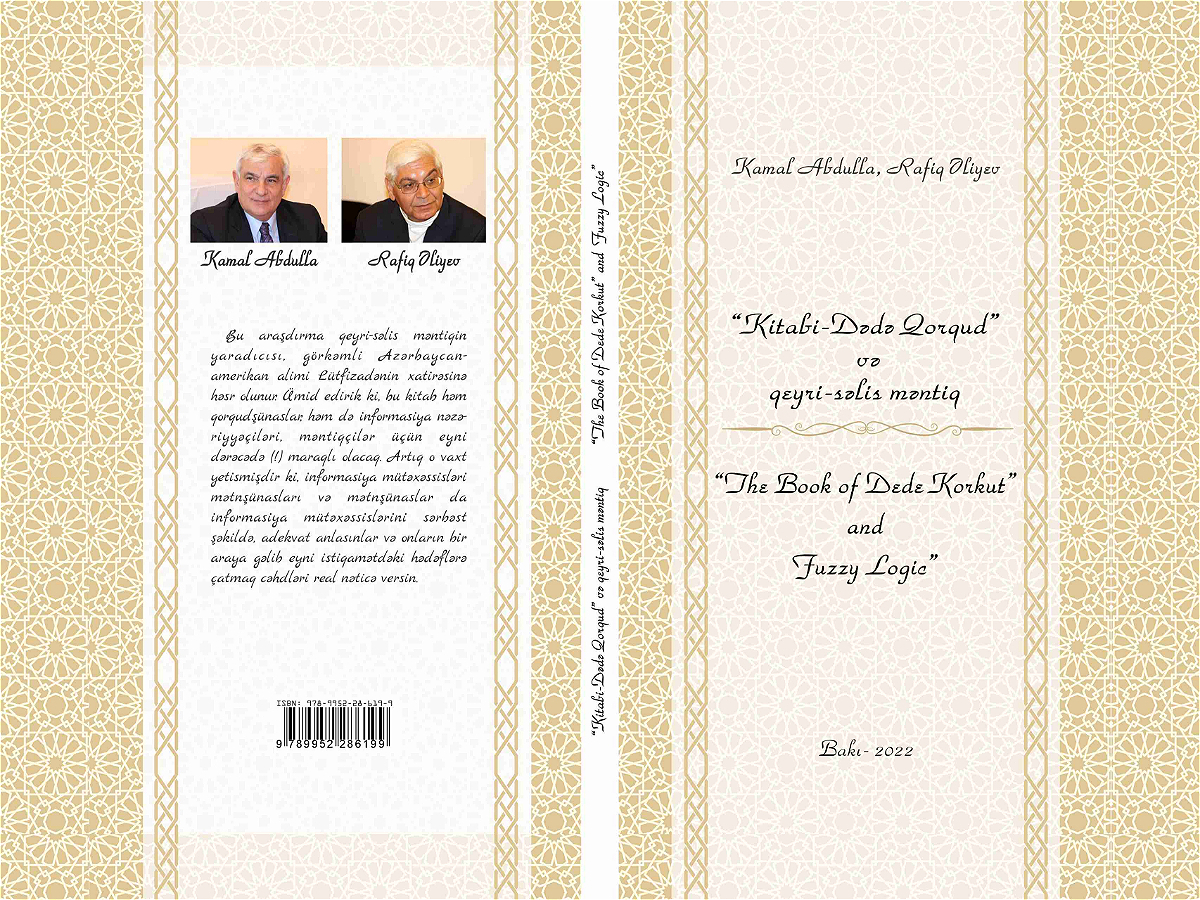The second edition of the book "Kitabi Dede Gorgud and fuzzy logic" was published

The second edition of the book "Kitabi Dede Gorgud and fuzzy logic", co-authored by the national writer, academician Kamal Abdulla and corresponding member of ANAS, professor Rafig Aliyev, has been published.
In the "Preface" of the book it is mentioned that fuzzy way of thinking was united in a scientific direction called fuzzy logic, and, in fact, was created as a counterbalance to Aristotle's formal logic, which until then governed our consciousness.
This logic is far from categorical, the way of thinking is close to man, his principles of understanding and perception of the world.
The book, created using Lutfi Zade's theory of logic, describes the four pillars of fuzzy logic theory-the general logical pillar, the fuzzy set pillar, the epistemic (epistemological) pillar, and the relationship pillar: "In its linguistic space, the ancient epic of the Turks, Kitabi-Dede Gorgud, gives much space to the principles of fuzzy logic. The way of thinking hidden deep in this ancient epic leads to the formation of specific logical schemes associated with the four pillars of fuzzy logic. It turns out that our epic has quite extensive linguistic material on fuzzy logic. This, in turn, indicates that our ancient ancestors preferred a broader and deeper approach in their worldview. The approach to choice becomes his preference.
The text of the epic shows that the possibility of choice and the democratic approach, which is the leading worldview principle of fuzzy logic, in other words, tolerance, is an eternal value inherent in our people since ancient times. Our ancestors learned to think democratically using the principles of fuzzy logic.
They were able to benefit from these principles because of their broad worldview and interest in exploring the depth and complexity of an issue.
It is necessary to note that the editors of the new edition published in the series "525th Newspaper" are academician Mukhtar Imanov and our compatriot Professor Magsud Efendiyev, reviewers are people's poet Ramiz Rovshan and professor Fakhreddin Sadikoglu, editors-publishers are chairman of Azerbaijan Press Council Rashad Majid and translator Seyfaddin Huseynli.